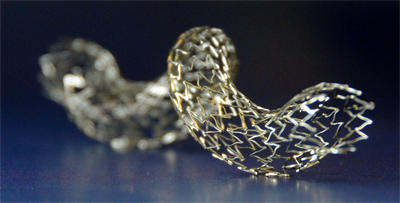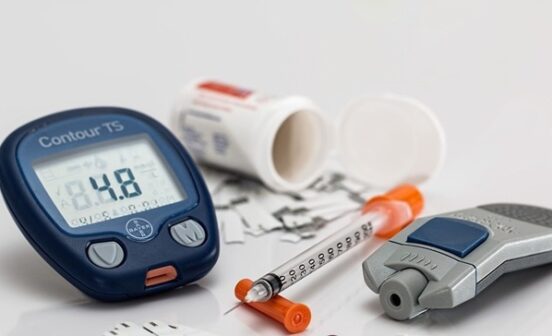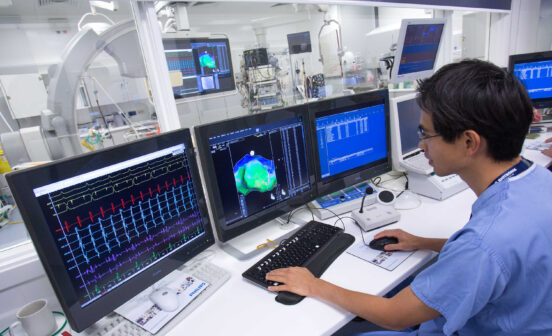Economic ImpactImproved OutcomesOperational ExcellencePolicy InfluenceService Delivery ChangesSystems Influence Innovative technology significantly improves treatment for patients with narrowing arteries

Narrowing coronary arteries that take blood to the heart (a stenosis) can cause chest pain and lead to serious problems, including heart attack and heart failure. Inserting a stent can relieve chest pain by opening arteries and restoring blood flow. However, this kind of invasive treatment is only required if blood flow is limited. Otherwise, the narrowing can be left alone, lowering risks associated with unnecessary procedures.
Researchers at the NIHR Imperial BRC developed the instantaneous wave-free ratio (iFR) for assessing the impact of narrowed arteries on blood flow. This technology uses a wire to measure the pressure difference either side of the stenosis in a minimally invasive, drug-free procedure. It can assess stenosis severity within a few heartbeats and reduce procedural time and costs by 10% compared to the leading alternative, resulting in a savings of $896 per patient. No drugs are required for the assessment, which reduces side-effects by 90% and readmissions by 25%.
The technology was patented and licensed in 2010. It was CE marked and received FDA clearance in 2014, and is recommended in all major cardiology guidelines. iFR is used in over 8,000 centres worldwide.





